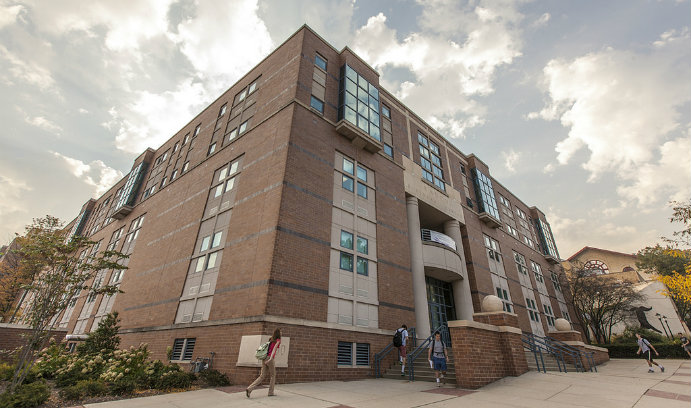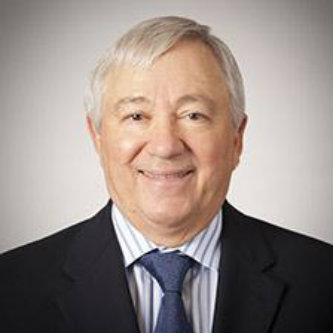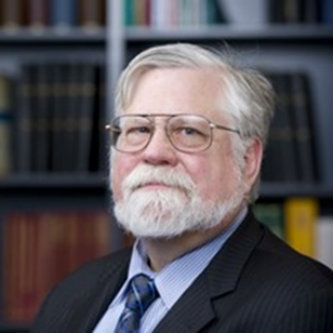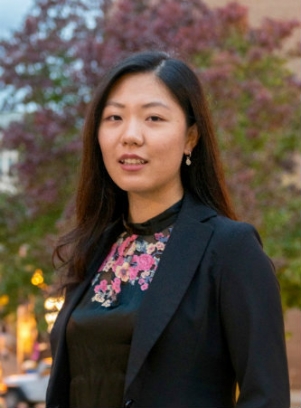Symposium to Address China’s Role in Global Energy Landscape

As Lehigh students concerned with global energy issues brainstormed ideas last year for an energy symposium, two developments on the world stage captured their attention: President Donald Trump’s announcement to pull the U.S. out of the Paris Climate Accord, and Chinese President Xi Jinping’s declaration to the Communist Party Congress that China would fill any leadership void in the global energy landscape.
Now, those Lehigh students—who form the Lehigh Student Chapter of the United States Association for Energy Economics (USAEE)—will join with the College of Business and Economics in hosting a symposium on campus Friday (April 20) with energy experts who’ll evaluate China’s evolving role on energy and environmental issues.
The “2018 Energy Symposium: China’s Role in the Global Energy Landscape” aims to provide an outlook for China’s energy future and a comprehensive assessment of the global impact of China’s energy and environmental policy. It will bring together energy experts from government, industry and academia, including Guy Caruso, former administrator of the U.S. Energy Information Administration and a senior adviser in the Energy and National Security Program at the Center for Strategic & International Studies, and David Knapp, president of the International Association for Energy Economics.
“China has indeed been pushing the development of sustainable energy including solar panels, wind power, pilot testing to cut coal usage, and a huge boost in electric vehicles,” said Huilai Gu ‘19, president of the Lehigh student chapter of USAEE, a Martindale Student Associate for 2018 and a dual IBE (Integrated Business and Engineering) major in finance and chemical engineering, “So China's policy has been shifting toward renewable energy, and I think that's part of materializing Xi Jinping's statement that China will take on a leadership role.”
Presentations and discussions will focus on China’s electricity market reform, the gradual replacement of coal by natural gas, the future market for renewables and electric vehicles, the establishment of a carbon emissions trading market, changes in oil and gas policy, and the appropriate methodology to evaluate China’s energy role.
“China is the world's second largest economy that consumes more than one quarter of the total global energy each year,” said former USAEE president David J. DeAngelo ‘66, who is active with the Lehigh student chapter and who was among those who raised the topic as worthy of a symposium. “Simultaneously, we appear to be at an tipping point with world leadership in global climate change policy. “
As typically happens in the energy arena, he said, significant geopolitical issues are raised.
“Our symposium will deal with those complex issues,” said DeAngelo, who was part of the symposium planning team. “Further, it has been my experience that a robust understanding of complex issues and problems requires dialogue and input from a variety of perspectives. Our symposium meets that requirement with speakers representing a balance of academia, government and business.”
Also planning the symposium were Lehigh student chapter leaders, including vice president Adhitya Jayasinghe ‘19, a dual major in materials science and engineering, and economics; faculty advisor Alberto Lamadrid, assistant professor of economics at Lehigh; advancement staff and the USAEE/IAEE (International Association for Energy Economics) Administrator.
In addition to Caruso and Knapp, other speakers include:
- Ayaka Jones, an international technical adviser at the Department of Energy’s Office of Fossil Energy.
- Andrew Kleit, professor of energy and environmental economics at The Pennsylvania State University and founding chair of its program in energy and business finance.
- Lynne Taschner, an energy advisor in ExxonMobil’s corporate strategic planning department.
- Da Zhang, a research scientist at the joint program on the science and policy of global change at MIT.
- Zhen Zhu, professor, Dr. Michael Metzger Endowed Chair at the University of Central Oklahoma.
“We hope, at the end of the conference, to provide an outlook for China's energy future and a more comprehensive assessment of the global impact of China's energy and environmental policies,” said Gu. “A lot of people don't realize there are serious challenges facing energy demand and supply in the world. This symposium aims to bring more awareness and hopefully inspire thoughts and action from students, faculty and energy professionals in the area.”
The symposium will be held from 10 a.m. to 3 p.m. in the Rauch Business Center. It is open to the public. More information can be found here.
Posted on:







